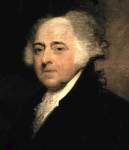I’m sorry for the lack of posts, Gentle Readers. I felt a bit ill over the weekend and then my mother had cataract surgery on Monday. That’s put me behind on several things but has given me occasion to revisit something I meant to do more of and fell away from. Welcome back to Deep Dives, where we go back in time far past the usual late Antebellum to look at the history of American slavery.
In those later decades, we think of Massachusetts as resolutely antislavery. The state practiced slavery at one point and conservative elements within it always remained inclined to make excuses, but we can reasonably call it a state that aligns firmly on the antislavery left. How it got from a state which enslaved people to one that did not receives little scholarly attention, even though we believe that it did so with an instantaneous, uncompensated abolition much like enacted in 1865. Some of that comes down to slavery lasting longer in the American South and the vastly larger scale of the institution there. We should also probably grant that the Revolution draws a tremendous amount of scholarly attention away from anything near to it. But that still leaves us with a remarkable story.
In 1780, Massachusetts wrote a new constitution which included a bill of rights written by John Adams. His draft received some style tweaks by a committee and the convention accepted it. Article I reads:
All men are born free and equal, and have certain natural, essential, and unalienable rights; among which may be reckoned the right of enjoying and defending their lives and liberties; that of acquiring, possessing, and protecting property; in fine, that of seeking and obtaining their safety and happiness.
An enslaved man named Quock Walker sued for his freedom under that provision in 1783. The Massachusetts courts agreed with him. The 1790 census shows no slaves in Massachusetts. Therefore Walker killed slavery in the Bay State and, retroactively, it was abolished with the adoption of the new constitution in 1780. Thereafter, Massachusetts assumed its place as the leading bastion of freedom. The records indicate a more complicated story and ambiguous story, as usual.
As soon as revolutionary rhetoric with its talk of natural rights began to circulate, black Americans insisted it ought to apply to them as well. White antislavery men agreed, but the flurry of speeches and petitions generated only limited action. The state House formed a committee to look into the conditions facing black Bay Staters in the fall of 1776. Spring brought about a few bills for abolition, with a gradual emancipation proposal gaining some steam. We don’t know how it would have gone down because the House drew up short of a final vote, instead asking Congress for an opinion:
from an apprehension that our brethren in the Other Colonies should conceive there was an impropriety in our determining on a question which may … be of extensive influence, without previously consulting your Honors
Congress, which had a war to run and absolutely no inclination to touch such an explosive issue if it meant to keep the South fighting the British, refused to answer. With no approval forthcoming, the Massachusetts House approved a petition asking for abolition and went no farther.

You must be logged in to post a comment.